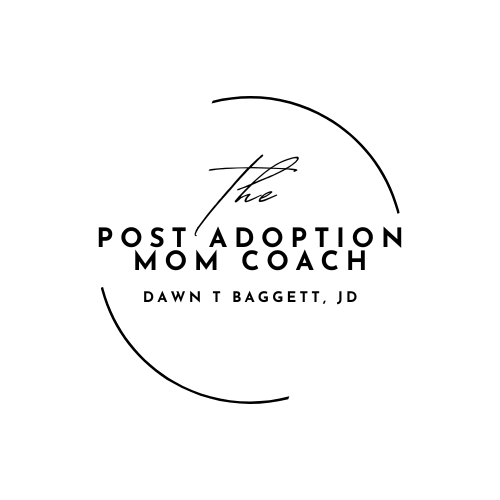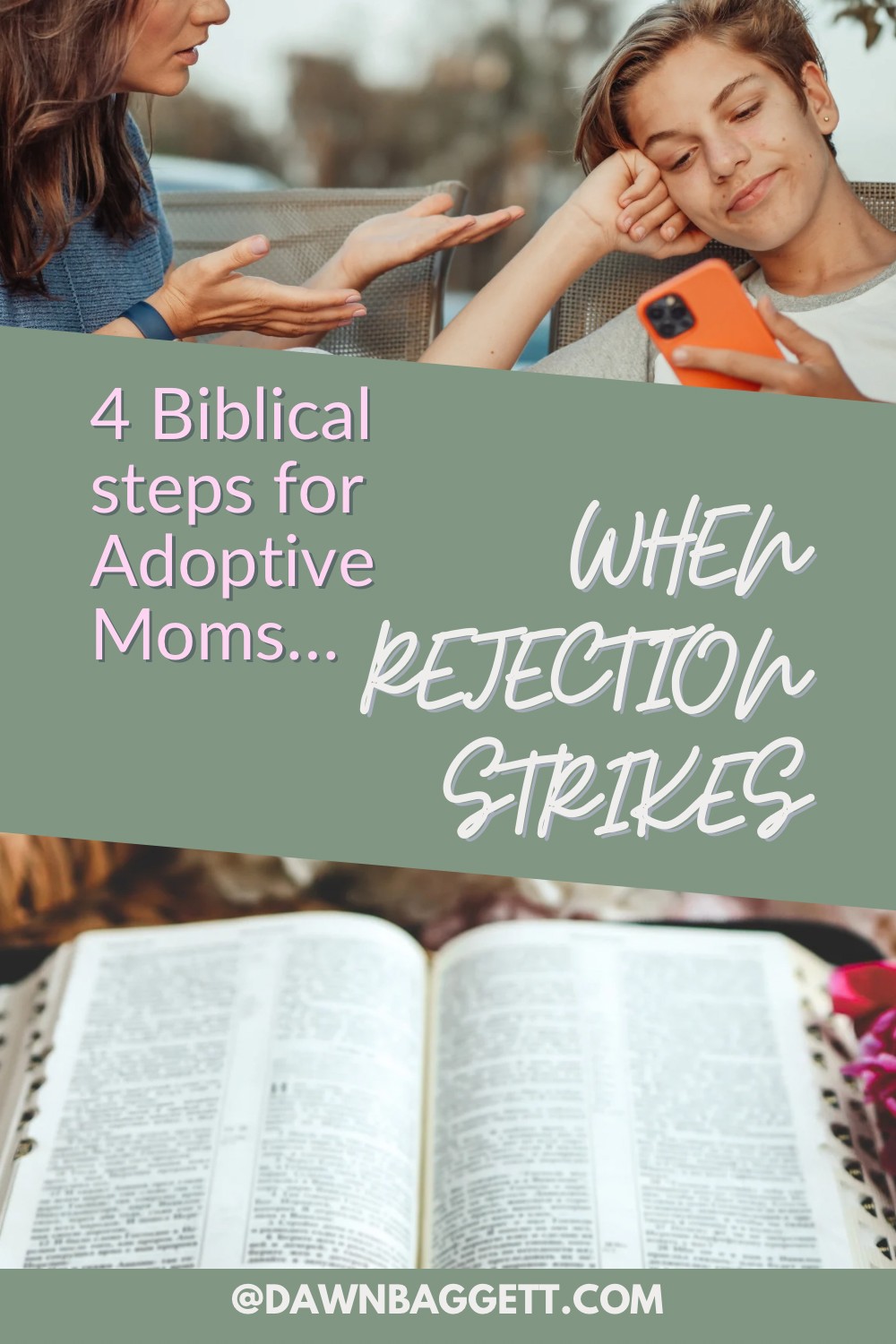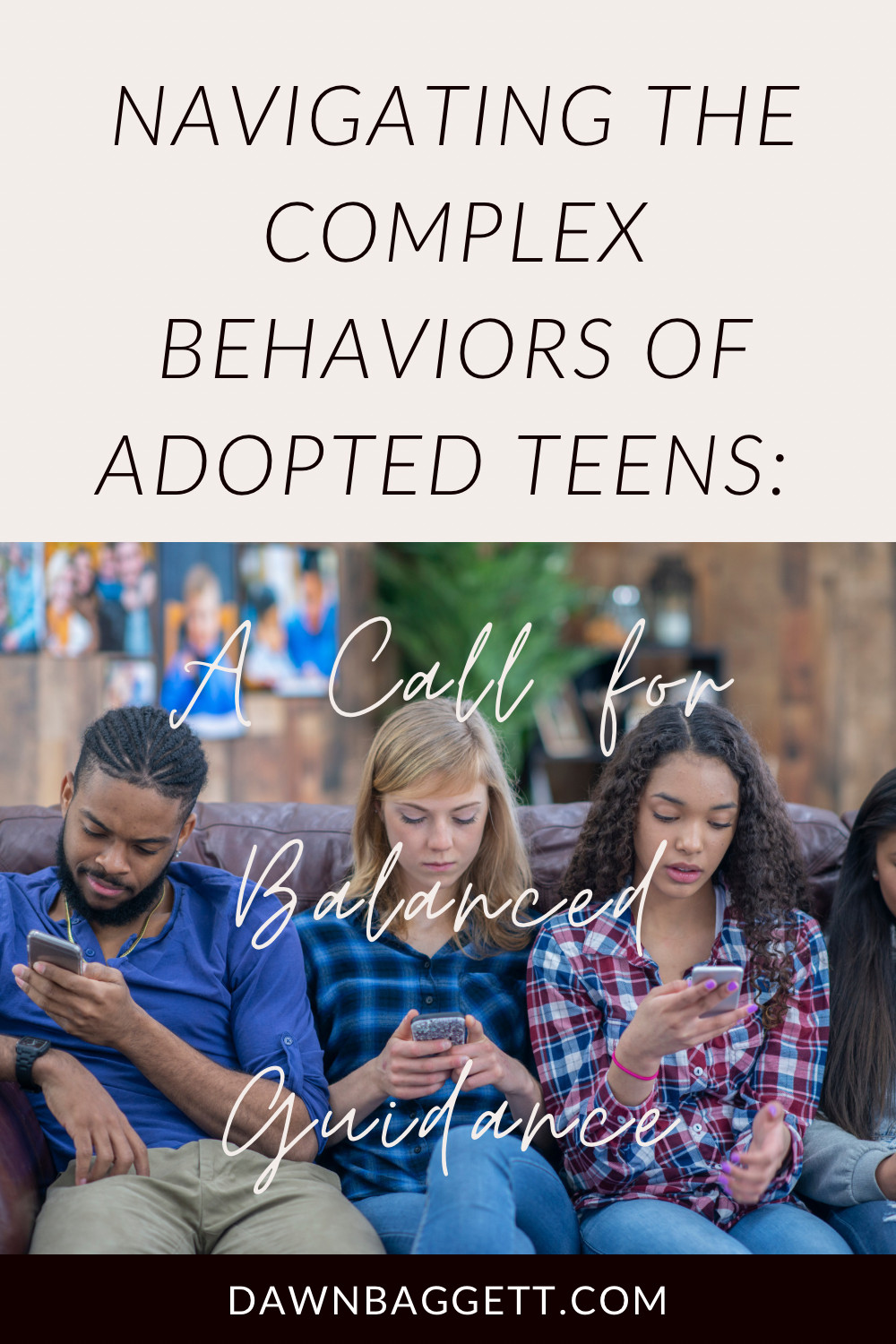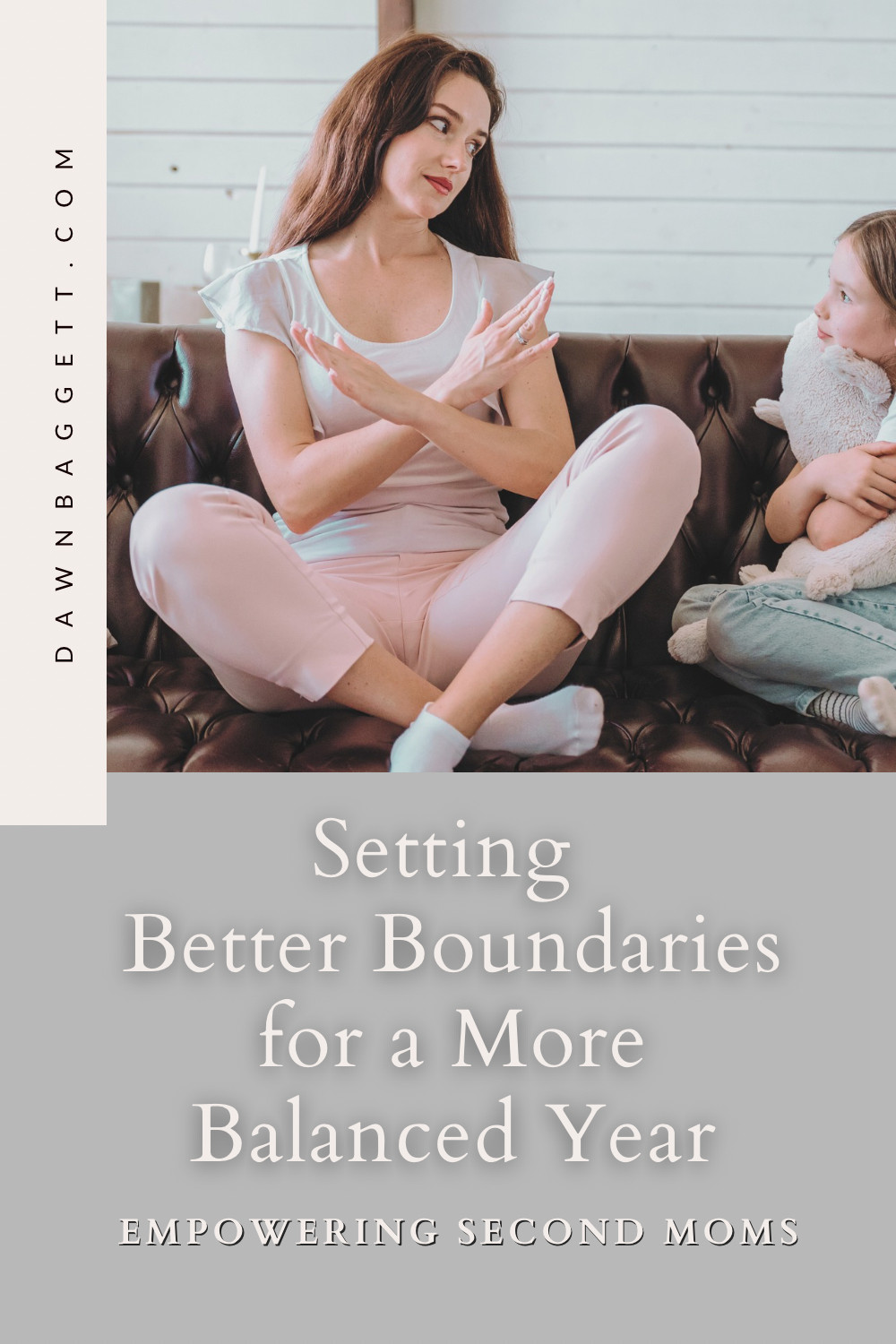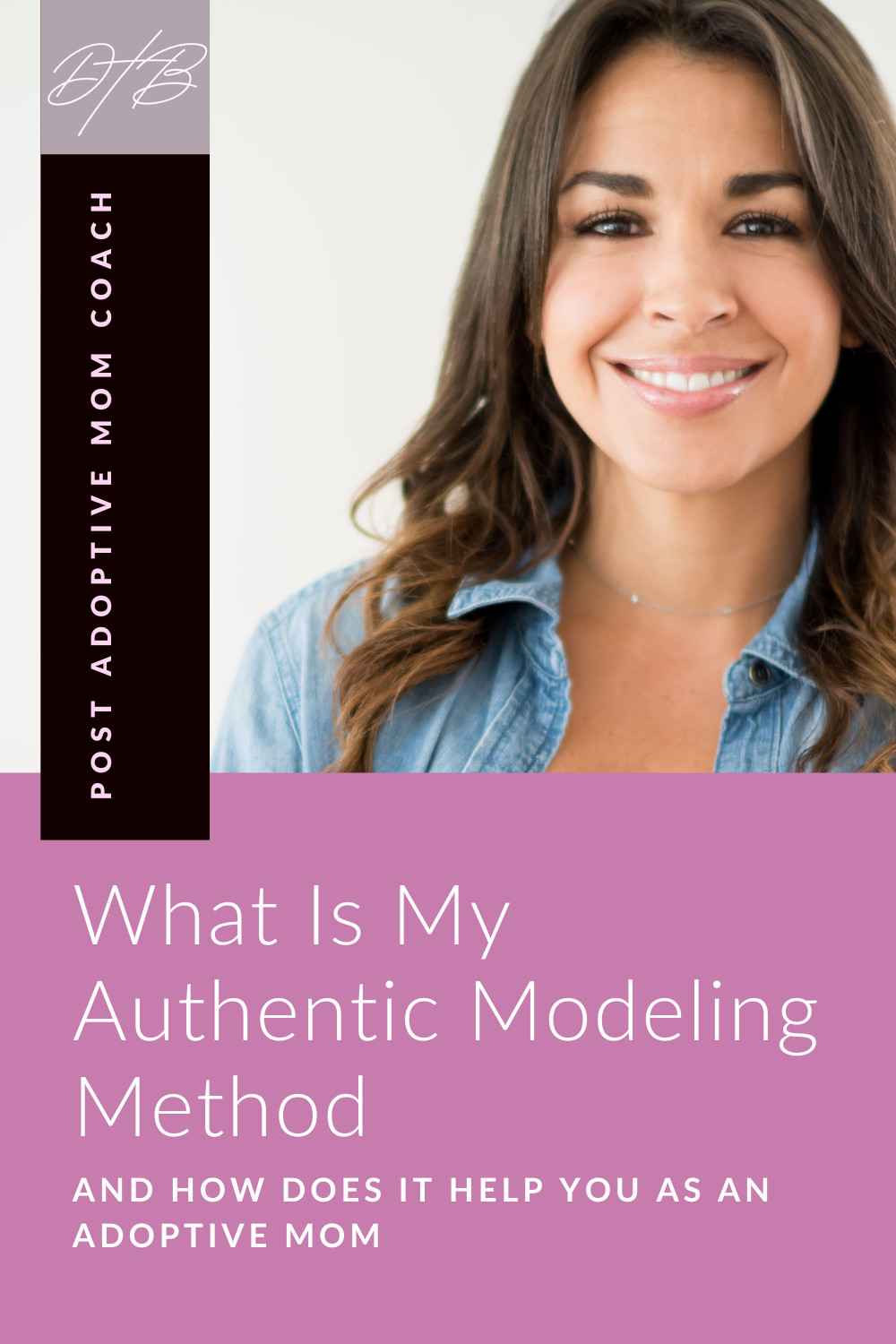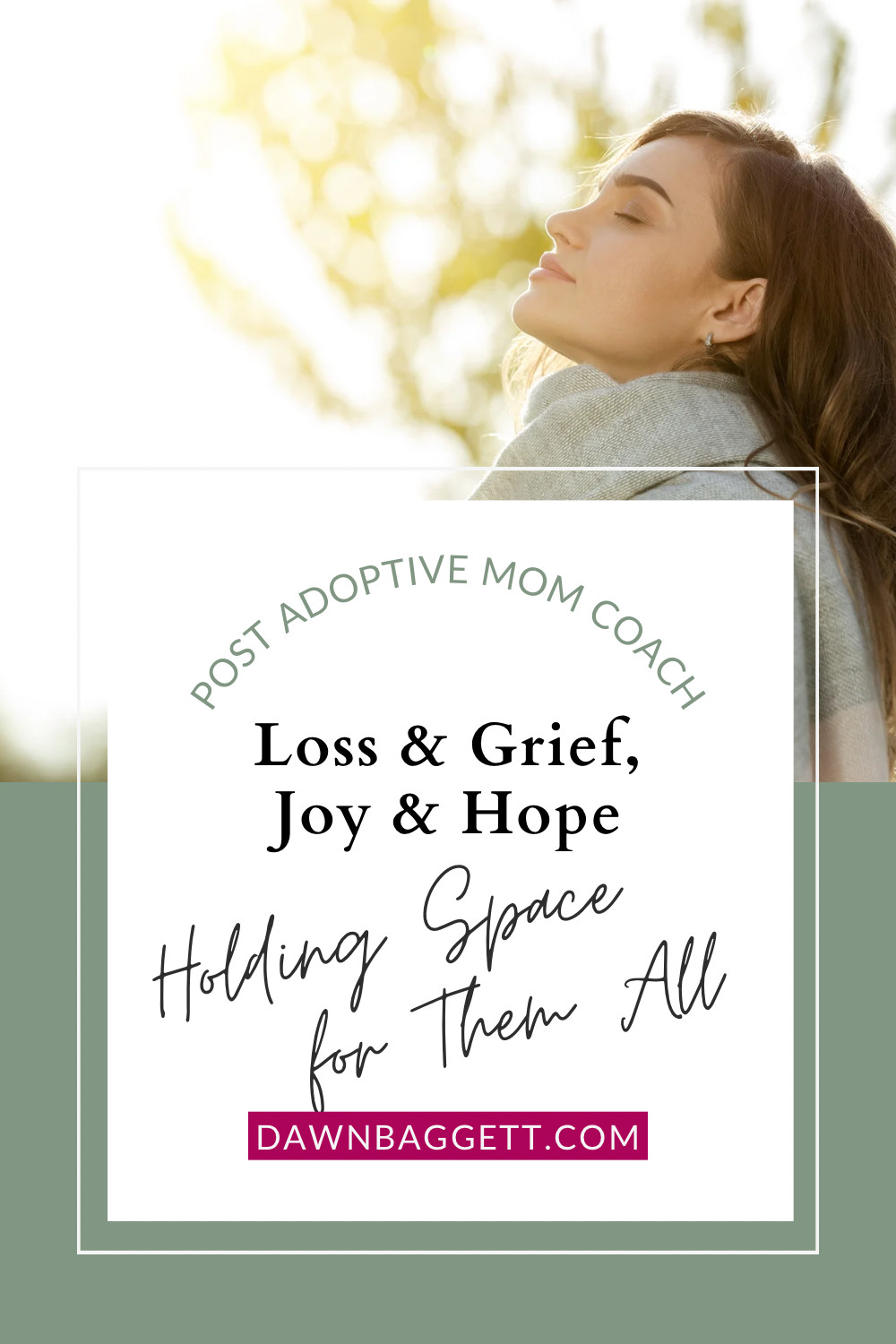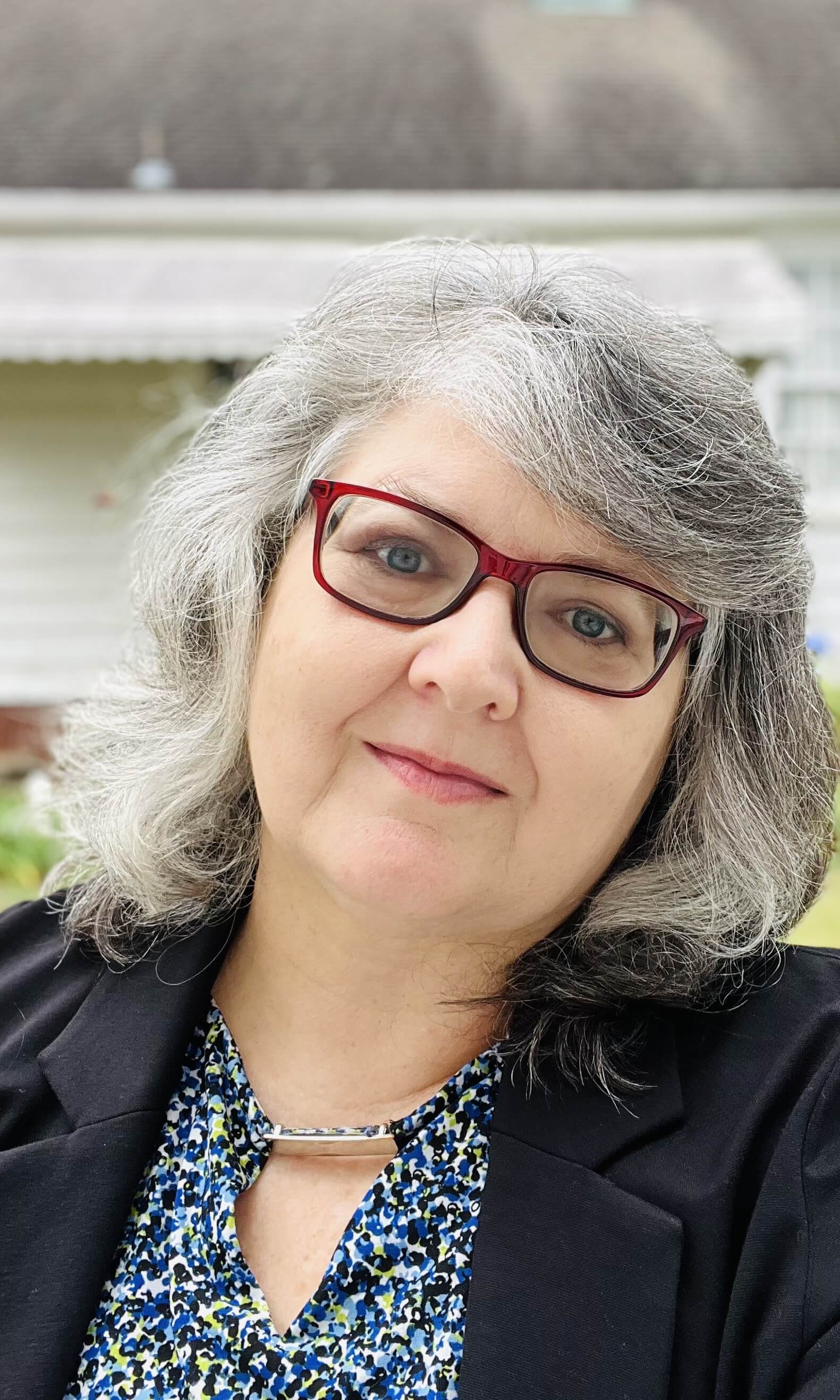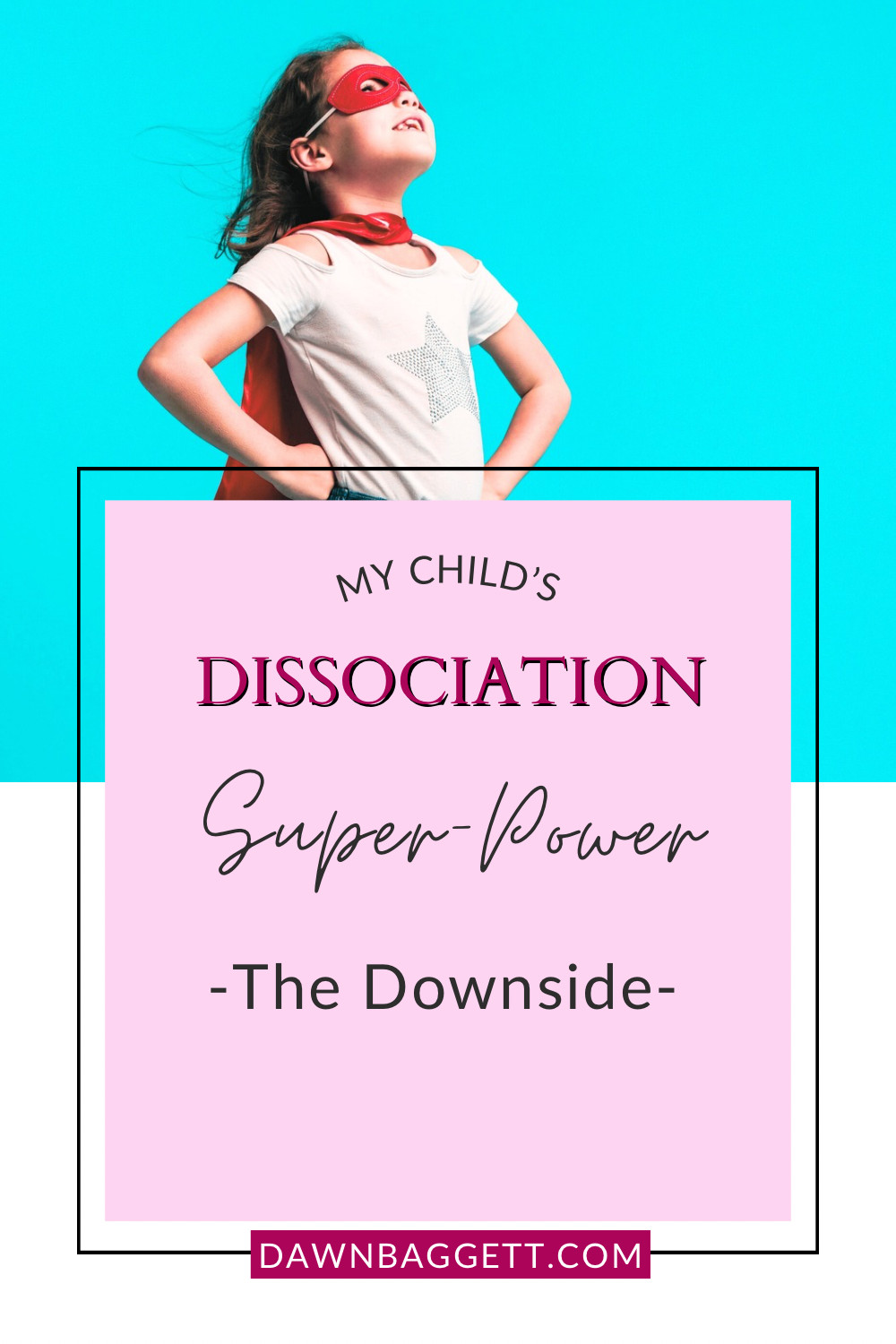
Do you know or suspect that your adopted child with a trauma history has periods, however brief, of dissociation?
Not by Choice
Dissociation in a nutshell is an involuntary disconnect from your body, mind and/or surroundings. It’s an involuntary episode that like a seizure, is not something your child is intentionally choosing to do. And your child's early trauma may be a risk factor for turning on this survival mechanism.
A reminder to yourself that this isn't voluntary, along with an awareness of the specifics of how it tends to play out in your affected child when a dissociation episode happens, can help you develop strategies and a plan to address it in the best way, even if that's just slowing down and being more patient in the moment.
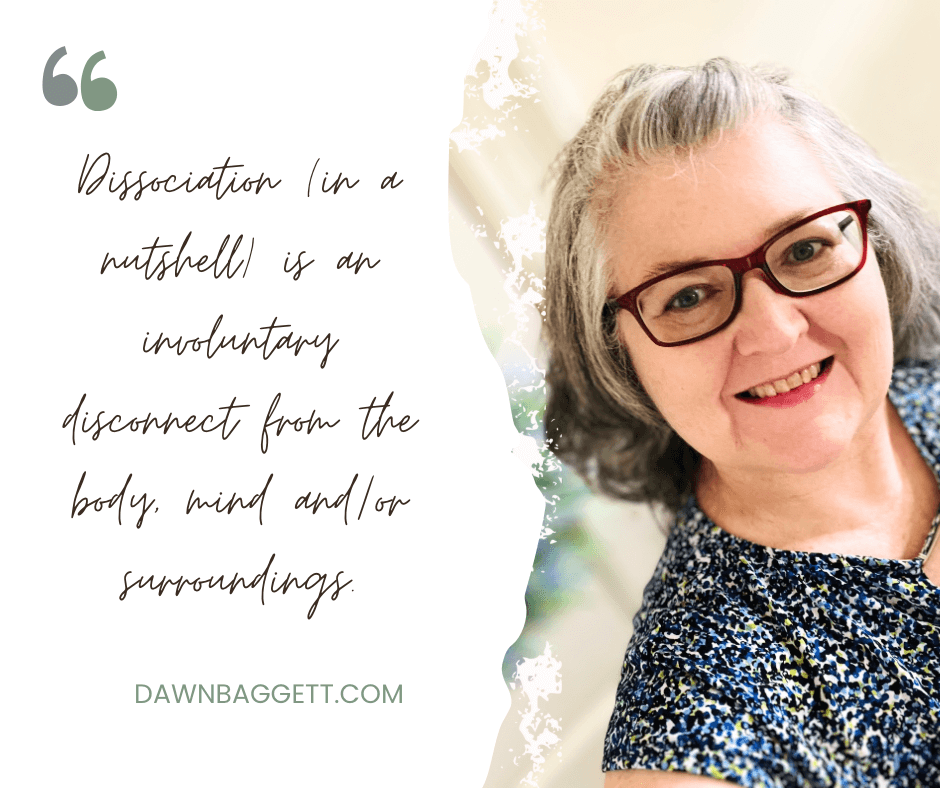
Affects You Too
As an adoptive mom, you're on a journey of love and compassion that also calls for resilience. Walking alongside of your child with long-standing trauma responses such as a tendency toward dissociation means you might need additional support too.
I expect that as a wise woman of God that you are diligent to seek out the information and available resources for your child. But you may be missing the emotional support you need for yourself.
The Bible reminds us in Psalm 68:5-6 that God sets the lonely in families and provides a home for the desolate.
“A father to the fatherless, a defender of widows, is God in his holy dwelling. God sets the lonely in families, ...”
Psalms 68:5-6 NIV
You have answered this divine call by embracing a child into your home and heart. Yet, as with all divine quests, this journey has its own set of challenges, especially when past trauma manifests in ways that tug fiercely at your heartstrings. It can also be confusing and frustrating at times.
Negative Effects
If your child has the super power of dissociation it can sometimes be a scary thing. Know that dissociation — an invisible companion for many who have faced early life storms --- is not just an avoidance of pain or bad feelings; it’s an adaptive survival mechanism borne out of necessity in their past.
But, this can be a double-edged sword, offering temporary relief but with a downside of some negative effects too. You may notice these negative effects as a lack of expected or typical expressions in your child. A real downside to dissociation for our children is that this involuntary survival mechanism can impede his or her access to emotions like joy, warmth, and connection that we all long to experience.
Memory lapses can come along with dissociation.
So can depression.
Imagine the beauty of laughter, the warmth of connection, and the brilliance of a smile — dulled by the fog of emotional self-preservation.
Dissociation Disguises
Dissociation can be part or partner to a variety of conditions and can be difficult for us as parents to recognize at times. Children may seem to be
• overly forgetful (or mistakenly thought of as lying),
• frequently daydreaming,
• inattentive,
• moody,...
As you strive to nurture and guide your adopted child, it's crucial to acknowledge that their dissociation, while a shelter in times of a traumatic past, can now be a barrier to embracing life with fullness.
My Invitation
The challenges of your child's journey through healing from their past trauma does not only impact them; it touches you as well. The weight and responsibility, the heartache and hope—all these can sometimes be overwhelming. You might find yourself exhausted or feeling inadequate, questioning if you're doing enough or if you're equipped for this path.
Here is my invitation to you: recognize your need for support, too. Seeking help doesn't signify weakness—it signifies wisdom and courage. Consider post-adoption coaching as a resource to equip yourself with strategies to support your child effectively while nurturing your own spiritual and emotional well-being.
Reach out, open your heart to guidance and support that aligns with your faith. Let’s walk together on this path, fostering an environment where healing and joy can coexist, not just for your child, but for you, too.
If you're interested in exploring post-adoption coaching and learning more about how I support second moms, make sure we’re connected through the Circle of Second Moms community. You can do that HERE.
And as always,
KEEP LEARNING - KEEP GROWING - KEEP LOVING
💜🩷♥️
Dawn
______________________________________________________
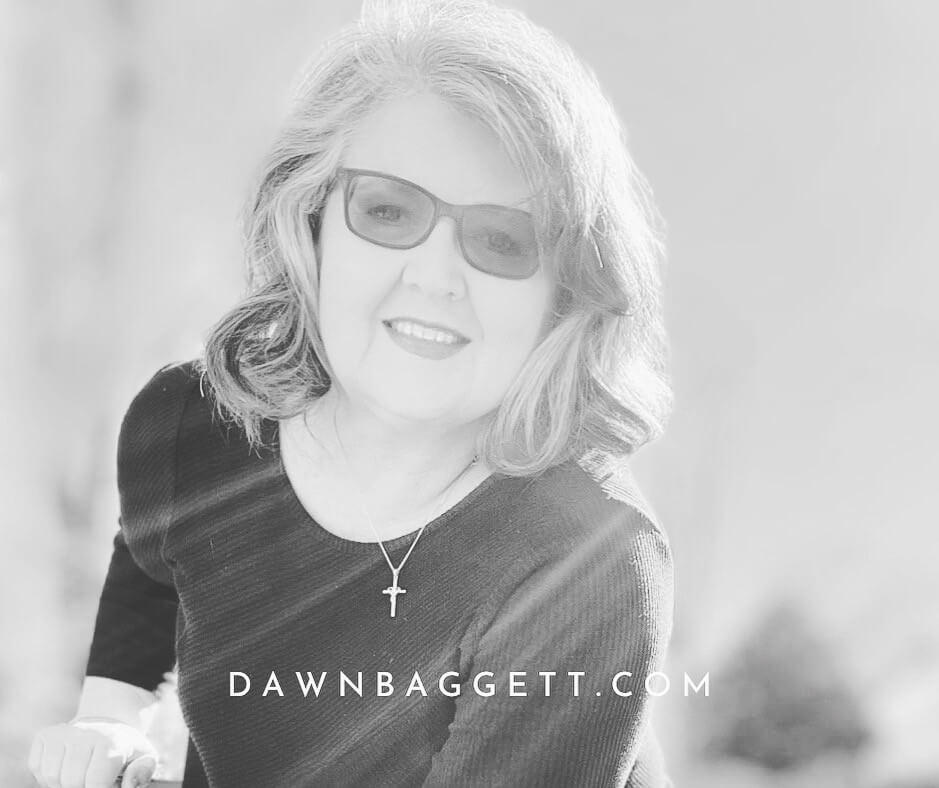
Post Adoption (Mom) Coach
“STANDING IN THE GAP FOR SECOND MOMS in Adoptive & Blended Families
As a Certified LifeMapping(R) Coach, Dawn helps Christian adoptive moms navigate the challenges of their non-traditional families with their own brand of (faith fueled) success!
DISCLAIMER: I’m a coach, not a doctor nor a therapist. As a coach I do not offer mental or medical health diagnosis, treatment or cures. Furthermore, I am no longer a practicing attorney and do not offer individual legal advice. For individual advice related to your own personal situation I recommend you seek out an appropriate professional. Coaching may fill a spot in your overall support network.
—
Copyright © 2025 Dawn T. Baggett, JD - All rights reserved
—
